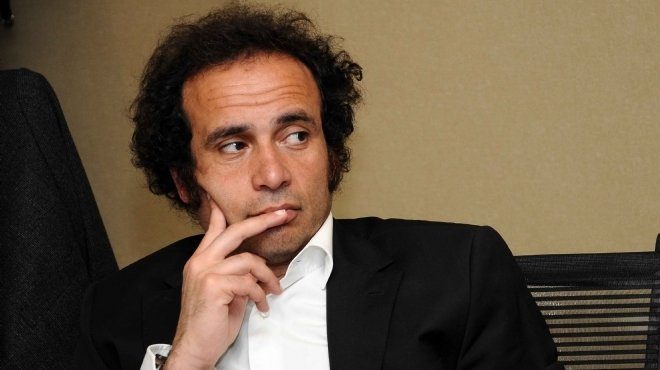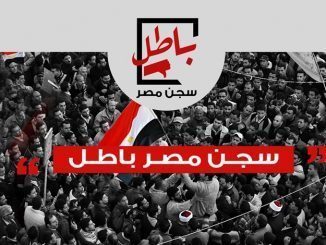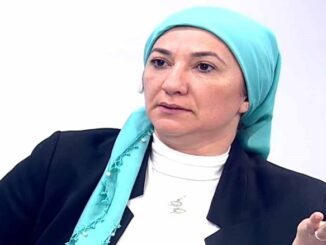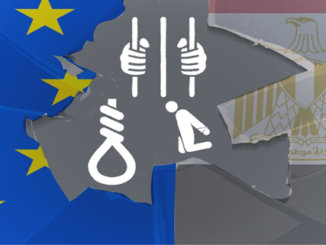
By: Amr Hamzawy*
The regime in Egypt cannot count on real economic and social achievements to get people to overlook the overwhelming practices of violence, injustices, and daily violations. The Egyptian authorities cannot either formulate a compelling political vision in order to maintain a fairly and stable societal satisfaction. Therefore, there are consecutive attempts from the regime to formulate alternative allegations to persuade people either to maintain their support for the regime or to simply refrain from the public affairs and not to develop this aversion to an opposition followed by a search for a substitute. The regime is doing this through the state institutions and agencies that are under its control, and also through its allied elites. However, these attempts come after, not before, the use of the official tools of violence to subdue the citizens or to scare them from the consequences of opposition.
On the one hand, the official discourse and the pro-regime media discourse have broadened the circles of “enemies and conspirators”, who are held responsible for the stumbled efforts to lift the country out of its crisis, and the inability to improve the living conditions of the majority of the people. In the summer of 2013, the Muslim Brotherhood formed the core circle of the “enemies of the homeland” who were accused of conspirating “to spread chaos”, “sabotage the national economy”, «disrupt the development efforts”, and others. Gradually over the past three years, the allegedly “terrorist” Muslim Brotherhood was followed by a smaller circle, i.e. the advocates of the human rights and freedoms, as well as the actors of the civil society organizations who have been trying to draw the attention to the deteriorating human rights situation in Egypt. Those have been classified as “enemies” and described -under charges such as “the Fifth Column”- as traitors, and conspirators, who seek to demolish the Egyptian state. They were also accused of complicity to implement “Brotherhood plans”, of receiving “foreign financing” to spread chaos for the fragmentation of the country and of exhausting the national institutions. Today, the circles of the “enemies and conspirators” have been broadened to include other sectors such as the students, who are being expelled from universities and robbed of their liberty, some of the youth, and workers, who continue to protest peacefully against the official policies, refuse to bow to the regime’s orders of obedience and compliance, and break the silence about the successive injustices and abuses. The repressive measures toward students, young people, and workers are passed and justified through accusations of “hostility to the nation and conspiring against the state and its institutions”. In fact, the regime does not endure the overt talk about its grievances and violations, nor is it strong enough to take responsibility for the failure of its official policies.
On the other hand, the regime is regularly widening the circles of enemies and conspirators by pumping additional blood to hatred, exclusion, and dehumanisation for enhancing polarization and oppression. Government officials used to come out for releasing arbitrary accusations regarding the identity of those involved in the acts of terrorism and violent practices. They spread a spirit of revenge among the people, and demand a collective and immediate punishment of the allegedly involved of the Brotherhood members, those who are sympathizing with them, and others. They do this without regard to the disastrous repercussions of such arbitrariness and generalization on the fabric of the same society, and also without realizing the seriousness of the feelings of vengeance and revenge, and their impact on the society, the state, and the principles of the rule of law and justice.
The regime is pumping more and more of the blood of hatred, exclusion, and dehumanisation, and is using this in a variety of contexts:
- as an initial defense line of a government that is excessively practicing repression, violation of the citizens’ rights and freedoms guarantees,
- to discredit the victims of repression, the anti-repression activists, and all opponents,
- and to justify its crimes such as extrajudicial killings, enforced disappearances, torture, and deprivation of liberty as legitimate acts to protect the state’s cohesion and to prevent the slide to the depths of collapse and fragmentation that are spread regionally.
Accordingly, the most extreme officials in the adoption of the hatred discourse have become more prominent in the public sphere. Also, the influential media men have become exclusively specialized in presenting false accusations against the regime victims, and abusing the minds of citizens by hiding facts and information. Also accordingly, the regime is not held responsible for the current persistent crisis in Egypt and the disastrous consequences of hatred, exclusion, and dehumanisation on the national state institutions -which have have been losing popular confidence- and community solidarity, which is harshly affected by the regime’s injustices and abuses.
Third, the regime’s official discourse, along with the pro-government media tend to prevent the non-satisfied citizens from developing their attitude toward a search for an alternative by emphasizing (almost daily) the opposition’s inability to manage Egypt’s affairs, and the need for the military institution to lead the “homeland ship” due to the weakness of civilian institutions and elites. They also promote another set of “romantic” arguments about the “regional and international conspiracies that are aimed at the liquidation of the moment of national rise”, and others. This would require accusing the civilian institutions and elites in the structure of the Egyptian state of “inability to run the country’s affairs” and stressing the need for relying on the leader and the strong institutions (the military) for protecting the nation and the homeland. This is usually followed by promoting the frequent arguments of the opposition defamation and underestimation, accusing them of having “personal interests” and acting in “distorted entities”, including parties, organizations and movements, that are not able to understand the requirements of Egypt’s national salvation.
* Amr Hamzawy is an assistant professor of political sciences at Cairo University and former member of the Egyptian parliament.
(Published in Al-Shorouk on Friday, August 26, 2016, and translated for MEO)



